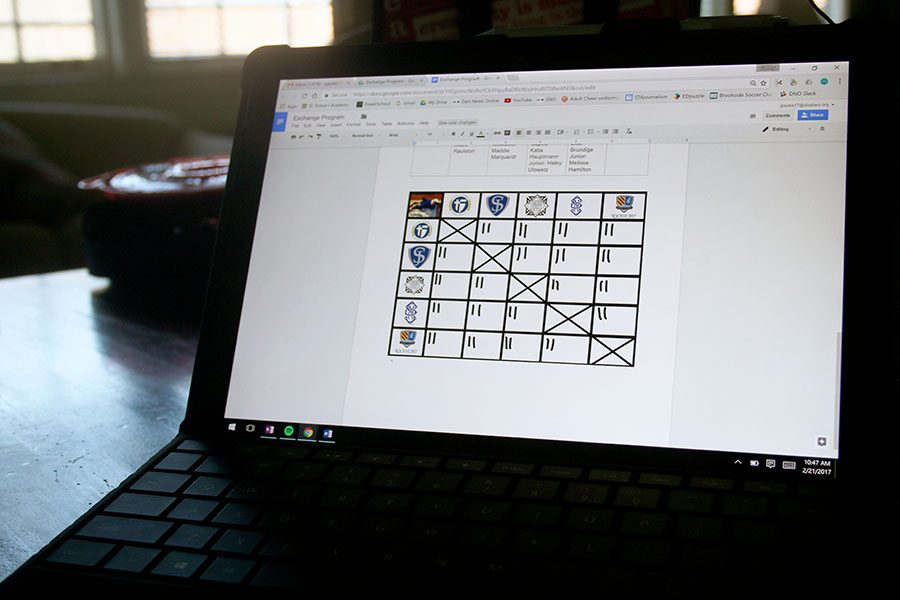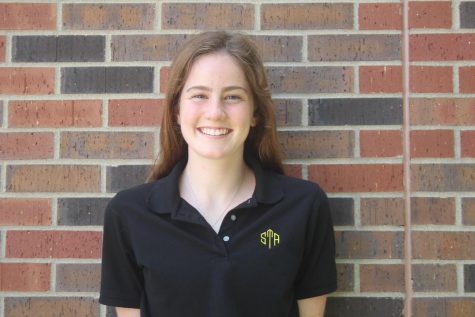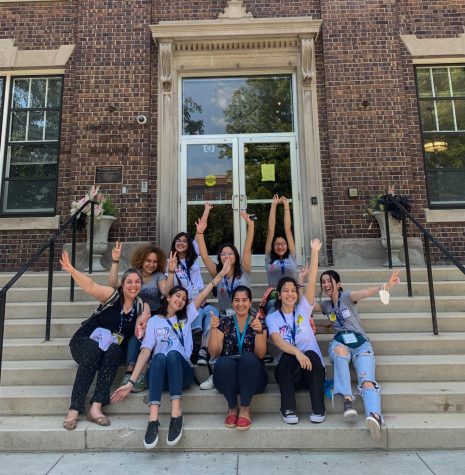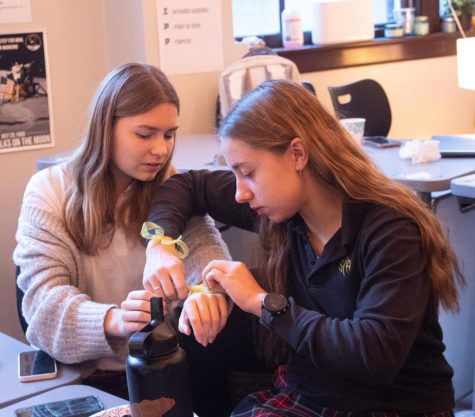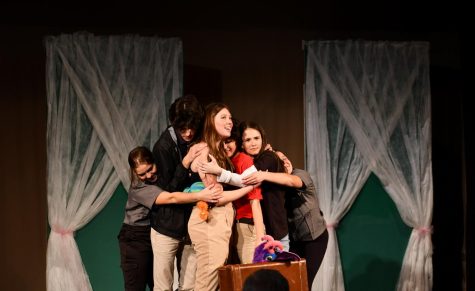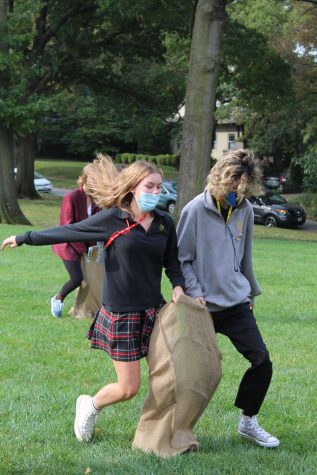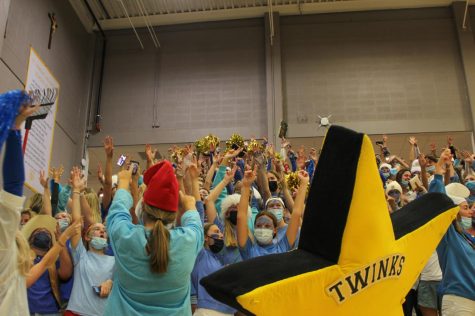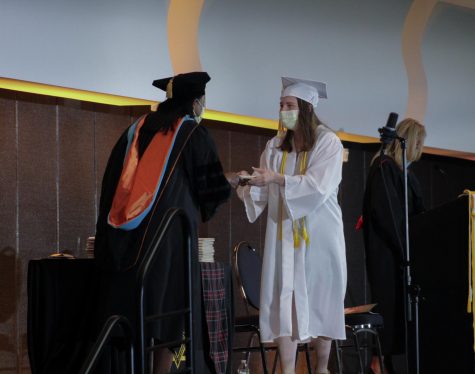Student government exchange cancelled due to exclusivity
A student swap between local Catholic high schools the week of Feb. 13-17 flopped because of concerns about a lack of inclusiveness.
The chart, made by the senior class officers, represents the number of students from each school who planned to participate in the Catholic schools’ student exchange program. Two students from each school were planning to participate, coming from five Catholic schools in Kansas City: St. Teresa’s, St. Thomas Aquinas, St. James, Notre Dame de Sion, and Rockhurst High School. photo by Sophie Sakoulas
March 3, 2017
story by Gabby Staker
February 13 came and went at St. Teresa’s Academy. The students never came.
Rockhurst High School senior class president Bernie O’Boyle and student government president Ryan Chandler had reached out to Kansas City Catholic high schools St. James Academy, St. Thomas Aquinas, Notre Dame de Sion and St. Teresa’s Academy to schedule a student exchange. Inspired by a “two-for-two,” one-day swap between Rockhurst and STA in 2011, O’Boyle had hopes to unite local student governments and abolish long-held stereotypes. As of Feb. 2, all schools were on board with the idea. By Feb. 3, Rockhurst had withdrawn.
STA senior class president Gabby Ayala worked in collaboration with O’Boyle and Chandler. According to Ayala, the week of Feb. 13-17, each of the five schools would have one day to host approximately ten shadows – two to three from each school. She was excited by the possibility, but held anxieties about the likelihood of the exchange being approved.
photos by Sophie Sakoulas
“While our moderator thought the idea was possible, he still needed to run the idea past his higher ups,” O’Boyle wrote. “That is where the program was deconstructed completely, and unfortunately, it was only weeks before the program was to begin.”
In their presentation to Rockhurst administration, O’Boyle and Chandler cast the student government exchange as an opportunity to create a union between the Catholic high schools of the greater Kansas City area. In theory, the union would involve coordination on fundraisers and service projects to boost turnout and impact on the community.
“It is believed that if this exchange program goes well, we will have a gaping window through which to really make a difference in our Kansas City community,” O’Boyle wrote.
Their final argument pushed for the exchange as a way to break stereotypes.
“It is known that experiences, often times more than information, vaporize ignorance,” O’Boyle wrote. “Rockhurst boys are often labeled as arrogant and misogynistic. This stereotype is proven false time and time again within and outside the walls of Rockhurst, though no one seems to look closely enough. The program gives the incoming shadows that opportunity.”
Despite these reasons, the idea was not approved. Rockhurst administration didn’t approve of O’Hara, Miege and Bishop Ward not being included. The “higher ups” also believed that sitting through classes at other schools would not be beneficial to the program.
However, Ayala said the exchange was never limited, and ultimately only included the schools that replied to their invitation.
After Rockhurst withdrew, Sion shortly followed suit, citing similar concerns about exclusivity. They proposed hosting a summit of Kansas City student governments to understand how other schools conduct their meetings and plan events at a later date. Sion student body president Elsa Brundige told Ayala they were also worried about the “lack of cohesion and communication regarding the exchange program.”
While its cancellation was disappointing for many involved, there is hope for a future version of the exchange.
“I was utterly deflated afterward, to say the least,” wrote O’Boyle. “This program that had so much potential was no more, and there was nothing we could do or say to change that. That being said, Mr. Linscott did want us to move forward with some sort of exchange, just an exchange vastly different from the one we had planned.”



